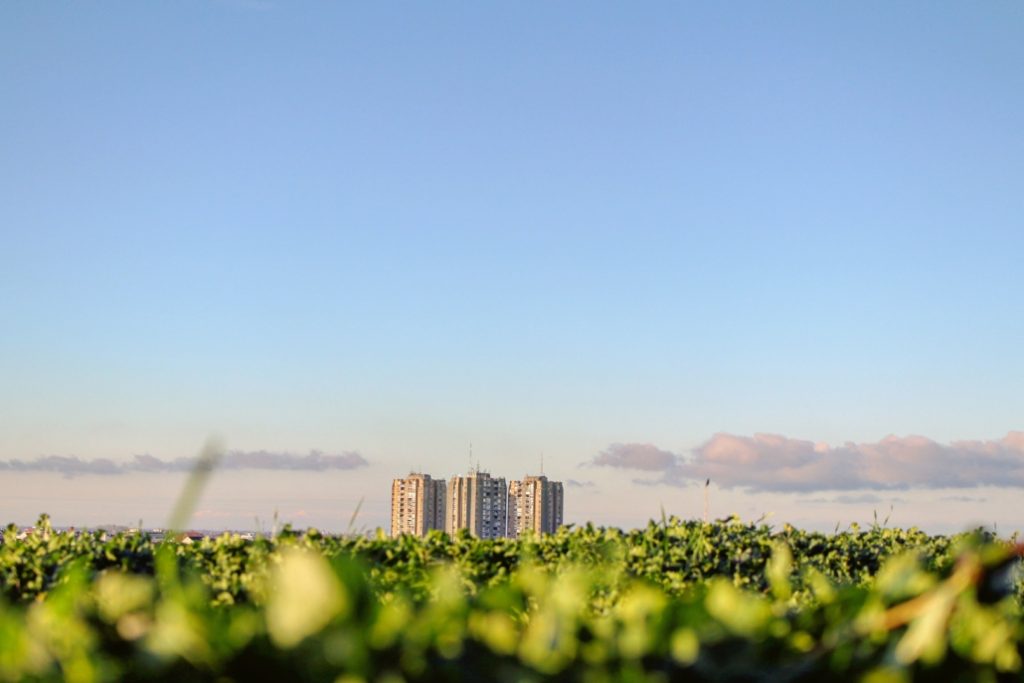The concept of sustainable development requires us to develop awareness and a shared responsibility to preserve the right to resources and a healthy environment for future generations. With the idea to point out the necessity of youth participation in Serbia in achieving the seventeen goals of sustainable development defined under the auspices of the United Nations in September 2015 by adopting Transforming our world: the 2030 Agenda for sustainable development, hereinafter I will, first of all, refer to the existing strategic framework at the national and local level in Serbia for the implementation of specific activities in this field. Then I will pay attention to the participation of young people in environmental and educational activities in cities and municipalities in the country, as a way to contextualize the global idea of sustainability in local conditions. Finally, I will try to highlight the shortcomings and suggest steps that could be taken with the aim of the progress of Serbia, but also other countries of the Western Balkans, in achieving the ecological, social and economic dimension of sustainable development.
Strategic planning of sustainable development in Serbia
The Standing Conference of Towns and Municipalities (SCTM), as a national association of local authorities in Serbia, has played a significant role in planning the implementation of the concept of sustainable development at the local level. Within the Program of Environmental Protection and Sustainable Development in Cities and Municipalities of Serbia 2004-2006, launched by the SCTM together with the Norwegian Association of Local and Regional Authorities (KS), an Interdepartmental Group was formed to write a Draft Local Sustainable Development Strategy in June 2004. The Local Sustainable Development Strategy was adopted at the National Conference on Local Sustainable Development in 2005. At that time, the Declaration on Local Sustainable Development was adopted too. In this way, the first foundations were laid for the realization of activities in the field of local sustainable development.
In addition, the Government of the Republic of Serbia adopted the National Strategy for Sustainable Development on June 3, 2008, for the period 2008-2017 with the vision that Serbia will be an institutionally and economically developed country, with efficient use of resources in 2017. The new Strategy for Sustainable Urban Development of the Republic of Serbia until 2030 was adopted on June 28, 2019. Many municipalities in the country, such as Subotica (for the period 2013-2022), Odžaci (for the period 2015-2020), Valjevo (for the period 2010-2020), Bač (for the period 2014-2020), have adopted their sustainable development strategies in accordance with the capacities at their disposal. This is important because it ensures the integration of the concept of sustainability into local policies.
Also, a system for monitoring the implementation of the 2030 Agenda has been developed. In July 2019, the Government of the Republic of Serbia submitted the first Voluntary National Review of the Republic of Serbia on the Implementation of the 2030 Agenda for Sustainable Development at the ministerial meeting of the Political Forum on Sustainable Development in New York. Furthermore, the Statistical Office of the Republic of Serbia monitors 83 indicators within the 17 goals of sustainable development and in December 2020 it published a Progress report on the implementation of Sustainable Development Goals by 2030. The experience of Serbia so far testifies to the existence of the will to adopt documents that are the basis for further implementation of activities, as well as for monitoring what has been achieved.
The situation on the ground: youth participation
The participation of young people in the field of sustainable development and decision-making in this area is encouraged by the National Youth Strategy 2015-2025 with the accompanying Action Plan 2015-2017. At the local level, in different parts of Serbia, initiatives and projects involving young people have been launched.
One of them was the project of cross-border cooperation between Serbia and Croatia, Education for Sustainability – Green and Energy Efficient Schools, in which, as Serbian partners, the Regional Development Agency Bačka and Technical School “Mileva Marić Einstein” from Novi Sad participated. In the period from July 2017 to January 2020, as long as the project lasted, it contributed to the improvement of young people’s knowledge about energy efficiency and renewable energy sources. One of the activities was the production of educational videos with the aim of introducing high school students to sustainable solutions in architectural planning. It is interesting that the participants of the project travelled to Austria, where they visited the Zumbotel factory that produces energy-efficient lighting solutions, the Wolfurt Music School and the Edlach Elementary School as examples of good practice and desirable energy systems, and Germany, where visited the Uhlandschule Primary School from Stuttgart, which produces more energy than it consumes after the application of renewable sources and changes in the energy management system. These types of visits not only provide an exchange of experience and acquisition of knowledge but also encourage young people to fight to, after they are convinced of the benefits, achieve similar solutions at home.
Education for Sustainability – Green and Energy Efficient Schools – educational video
I would also like to point out the activities of the Young Researchers of Serbia, who are a non-governmental organization that grew out of the research movement that emerged in 1969 in Valjevo. Within the programGreen Incubator: Botanical Garden, Biomass, “Bicycle” and Green Awakening, a number of local groups were gathered: Green SKOK from Sremski Karlovci, Natives from Valjevska Kamenica, Association “Ljubičica” from Šabac, students of stage architecture, technique and design from Novi Sad. A number of activities are realized at the local level, in their municipalities, and some of them are workshops on how to make objects from recycled material, making educational material on the importance of biomass, workshops on urban gardening. Bicycle parking lots are also being set up to encourage this type of transport in cities. These types of youth activities at the local level are a true realization of the idea “Think globally, act locally”. Small steps at the local level contribute to the overall performance of the country in realizing the global idea of sustainability.
Environment Engineering Group is also very active in promoting the idea of sustainability in the country. Other countries from the Western Balkans, such as North Macedonia, Montenegro and Bosnia and Herzegovina, are also involved in the Turn on the brain and do circular and Active youth for healthier future projects. Within the mentioned initiatives, the development of young people’s knowledge about the circular economy is encouraged and the most important activity is the gathering of young people in the village of Jazak in Serbia, this summer, where they will be able to meet, socialize and exchange knowledge. This is also important in terms of bringing young people together in the region and building ties for the times to come.
Problems and how to fix them?
In addition to the fact that formally speaking, there are strategies and plans at both the national and local level for the implementation of activities in the field of sustainable development, there are still different types of problems. Serbia lacks environmental ethics, which would mean putting environmental protection ahead of the short-term needs of the individual and developing a true sense of responsibility to put the idea of sustainability into action for the good of future generations. Moreover, the idea has not been sufficiently promoted through education and media content.
There are also problems of a financial nature. According to data of the Statistical Office of the Republic of Serbia in December 2020, the share of research and development expenditures in GDP was 0.89% in 2019. A true commitment to the 2030 Agenda would mean greater investments in the development of scientific activities in the country, especially in areas dedicated to the environment and sustainable solutions in the economy, construction, energetics. This shows that the country is not investing enough in its human capital.
In addition, Serbia, in its accession negotiations with the EU, did not open Chapter 27 – Environment and Climate Change, and the European Commission’s Annual Report on Serbia 2020 assessed that the country has achieved some level of preparation and made limited progress, mainly on strategic planning. The recommendations in the Report have not changed in relation to 2019 and they also concern the key problems that the country is facing in this area. Some of the recommendations relevant to the implementation of the concept of sustainability are the closure of non-compliant landfills, investment in waste reduction measures, waste sorting and recycling, reinforcing air quality monitoring, implementation of the Paris Agreement through the adoption of a comprehensive climate strategy and National Energy and Climate Plan. It is clear that in solving the mentioned problems, Serbia should be ready for significantly larger allocations from the budget, strengthening administrative capacities and the role of environmental inspections, promoting sustainable development, especially among young people, through greater inclusion of these topics in school curricula. Potential regional initiatives and projects in the field of sustainability in the Western Balkans are also a desirable step towards progress, not only in the implementation of the 2030 Agenda, but also in terms of regional progress towards EU membership.








